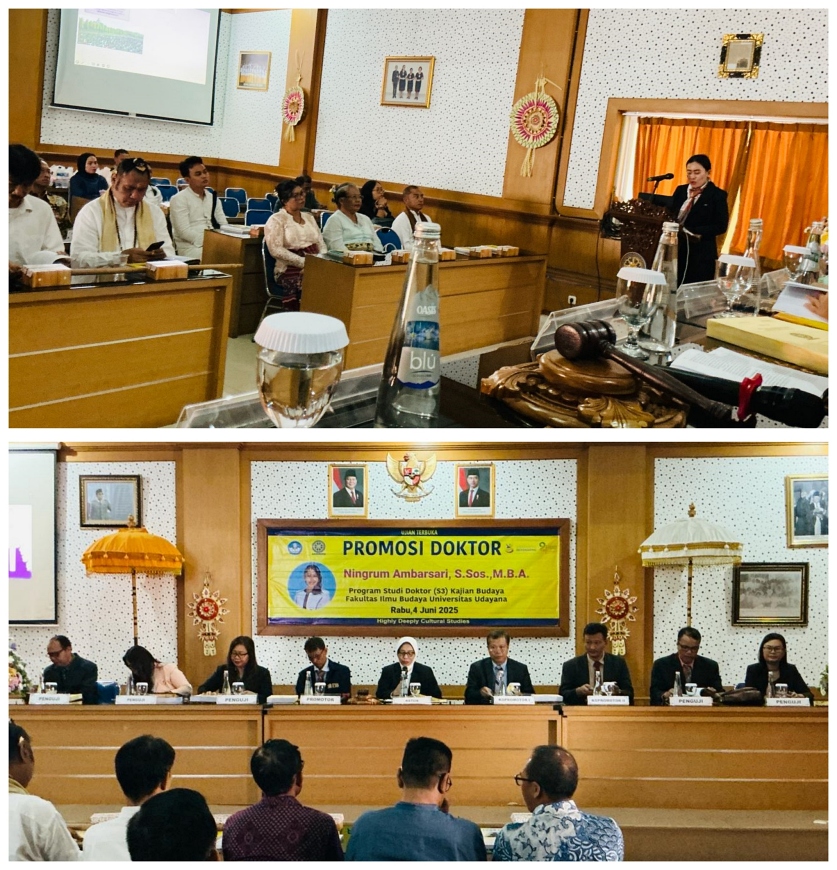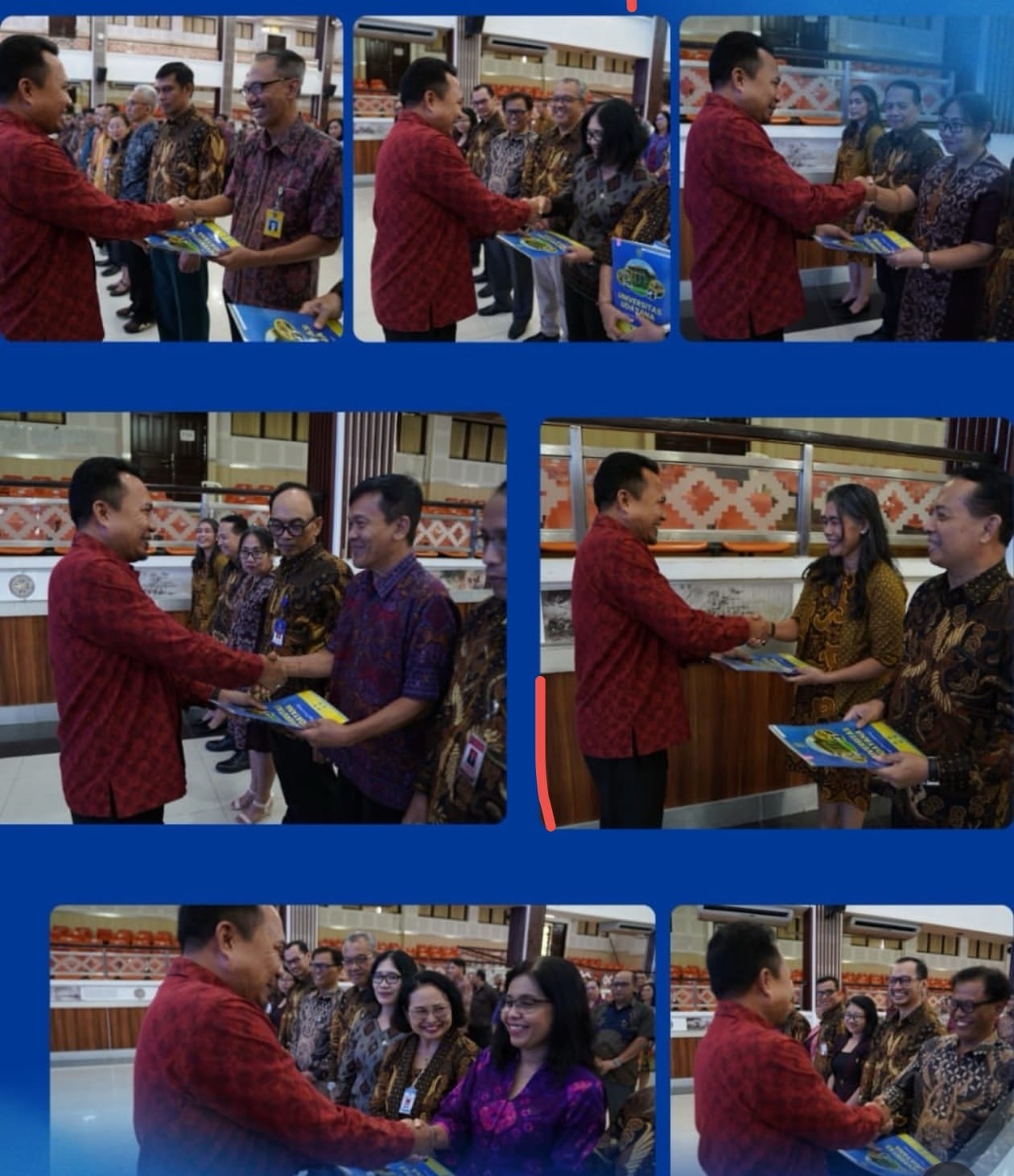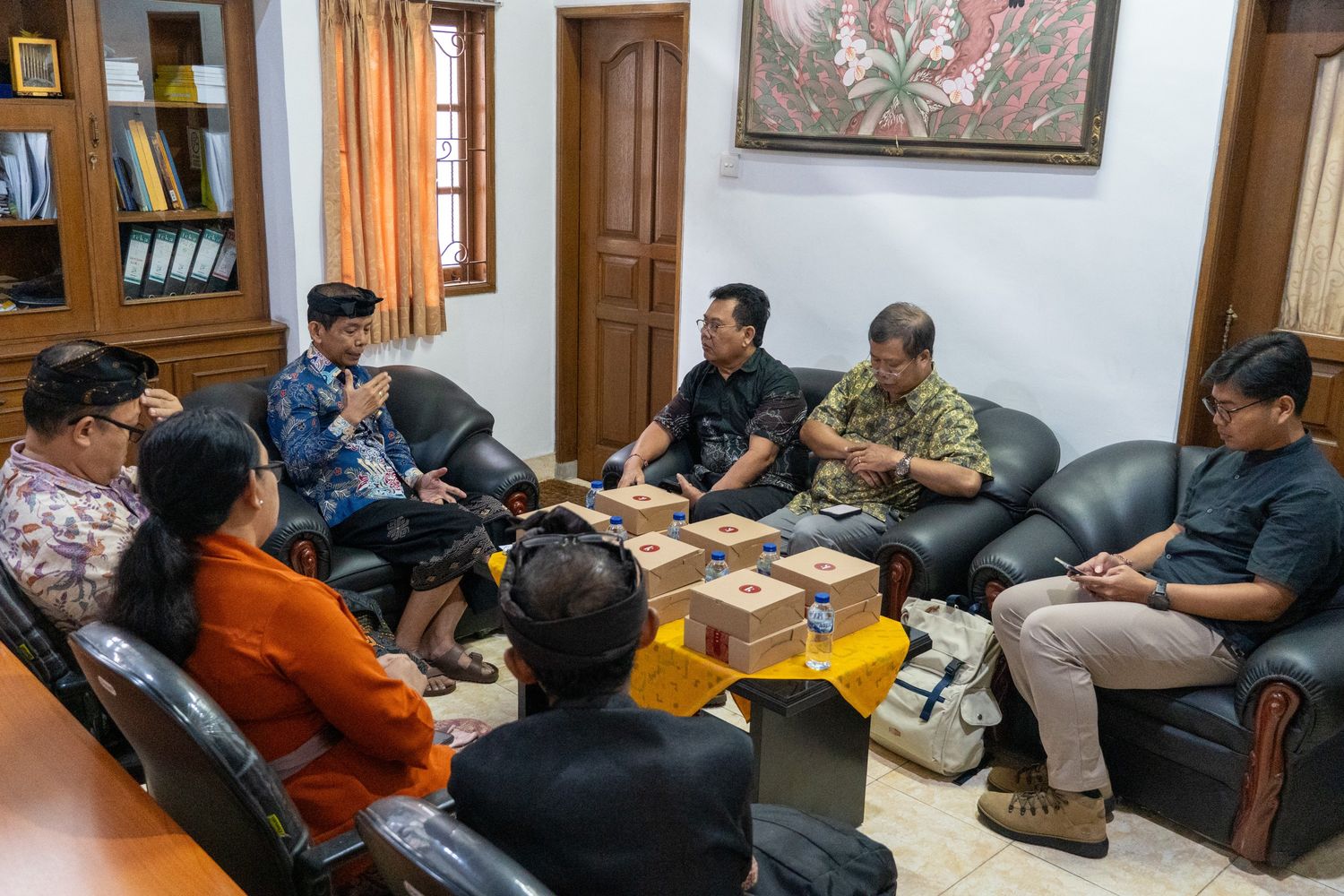Examining the Transformation of Yoga Practice in the Era of Global Capitalism, Ningrum Ambarsari Successfully Earns a Doctorate Degree of Cultural Studies
On Wednesday, June 4, 2025, the Doctoral Program in Cultural Studies, Faculty of Humanities, Udayana University held an open examination in the Ir. Soekarno Room, Poerbatjaraka Building, FIB Unud. The promovenda, Ningrum Ambarsari, S.Sos., MBA, is the 292nd doctor in the Doctoral Program in Cultural Studies, FIB Unud, and the 248th in the Faculty of Humanities, Unud. The dissertation presented was entitled, "Spirituality and Commodification: Transformation of Yoga in the Global Capitalism in Bali" written entirely in English. Her dissertation describes the forms of transformation in yoga practice in Bali, the ideologies underlying the transformation and the consequences of this shift for Balinese society. She successfully defended her dissertation and was declared to have graduated with cum laude or with honors.
The study placed great emphasis on the lived experiences of diverse stakeholders, including yoga teachers, studio owners, tourists, and a Balinese spiritual leader. It highlighted how yoga practices in Bali reflect broader global trends while intersecting with local belief systems, resulting in a hybrid form of commodified yoga that adapts local spirituality. The study was conducted in Ubud, Denpasar, and Seminyak over a period of approximately three years. Strategic insights from this study revealed that the function of yoga had undergone significant expansion in various aspects, including meaning, purpose, identity, and diplomacy. It highlighted how spirituality in yoga practice moves beyond the framework of traditional religion.
The findings of this study revealed a complex interaction between spirituality and commodification, where rituals and symbols continued to be used. However, the functions of these symbols and rituals were increasingly adaptive, reflecting the continuity of tradition amidst market-driven transformation. The transformation of yoga practices in Bali could be viewed in four forms: ideological, process, managerial, and symbolic. Yoga originated and was rooted in spiritual and ritualistic practices in the Hindu tradition. In its development, practitioners now view yoga as a solution for mental balance, stress relief, and physical fitness, in line with contemporary health trends. The practice has shifted from meditative rituals to more dynamic and fitness-oriented sessions. Commercially, yoga has been shaped by the influence of capitalism, with studios prioritizing efficiency, paid services, and global branding, although some local centers maintain community-based and donation models.
In the end, there are still interesting gaps to be studied further. This is because this research is still limited to certain locations, studios, and informants, most of which focus on famous yoga centers such as Ubud, Seminyak, and Denpasar. Therefore, it will open up opportunities for further research in the field of popular culture, especially in expanding the research location, as well as empirical data analysis of economic implications for Balinese society, so that a more diverse picture of Yoga practice can be obtained. Closing the open examination, in his speech, Promotor Prof. Dr. AA Ngurah Anom Kumbara, MA said that this dissertation analyzes yoga practices in Bali within a post-structuralist theoretical framework, far more than just a structural analysis that prioritizes binary opposition.




UDAYANA UNIVERSITY